A sports moment for the ages, a botched radio call, a live broadcast believed lost forever… then miraculously rediscovered. What a story!
By Mark Wainwright
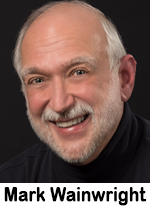 The History Channel calls it “The Most Dramatic Home Run in World Series History.” ESPN has often described it as the greatest home run of all time. To this day, it is the only World Series Game 7 walk-off home run.
The History Channel calls it “The Most Dramatic Home Run in World Series History.” ESPN has often described it as the greatest home run of all time. To this day, it is the only World Series Game 7 walk-off home run.
Long-time baseball fans know the basic facts: On October 13, 1960, Bill Mazeroski of the Pittsburgh Pirates hit a line drive over the left field wall at Pittsburgh’s Forbes Field to win the World Series for the Pirates.
This was an iconic moment in baseball history, and an iconic moment in baseball broadcasting history, as well … although the Hall of Fame broadcaster who described the moment for the national radio audience probably wished he could have done a second take!
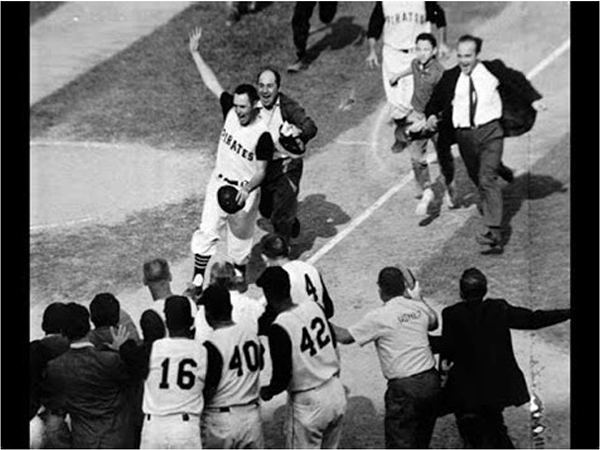
Above: Bill Mazeroski crosses the plate for the Game 7 victory! (photo courtesy YouTube)
It was a dramatic finish to an astonishing World Series, but as often happens, the backstory of that moment and how it was broadcast– and everything that led up to it – has been largely forgotten. As we follow this year’s MLB playoffs (while taking note of the anniversary), it’s worthwhile to look back at an earlier, very different era of post-season baseball…
******************************
The 1960 World Series opponents could hardly have been more different. The New York Yankees of that era were a machine, and the 1960 team easily dominated the American League on their way to the pennant. In contrast, the Pittsburgh Pirates were a surprise. The Pirates had not been to the Series since 1927, they were coming off a mediocre 1959 season, and expectations were low… but they got off to a good start and managed to keep it going. With timely pitching, clutch hitting, lucky breaks, and a never-say-die attitude (21 of their 95 wins came in their final at-bat), the Pirates claimed the National League pennant. The Yankees were studs, while the Pirates were scrappers, and the first six games of the Series reflected the character and personality of the respective teams.
In their three wins, the Yankee sluggers clobbered Pittsburgh pitchers for 38 runs. Yet, the Pirates managed to hang on, squeezing out three close victories in response. It all came down to Game 7 at Forbes Field on the afternoon of Thursday, October 13. Not only were there multiple Hall-of-Famers on the field and in the dugouts, there were Hall-of-Famers in both the TV and radio broadcast booths:
NBC’s national TV broadcast (in “Living Color!”) was handled by Yankees announcer Mel Allen and the Pirates’ Bob Prince, while NBC’s national radio broadcast was called by the Chicago Cubs’ Jack Quinlan, and Chuck Thompson, the play-by-play voice of the Washington Senators… wait, what? The Washington Senators? Wasn’t Chuck Thompson the voice of the Baltimore Orioles forever? For most of his career, yes… but Thompson was caught in a business dispute between the Baltimore brewery that owned the Orioles and the Baltimore brewery that owned his broadcasting contract, so Chuck wound up in Washington for a while (alas, as so often happens in life, it was a battle between money and beer, and money won out).
Game 7 combined and concentrated all the craziness of the previous six. Both pitching staffs were tired, and the hitters took advantage; it is the only game in World Series history where no pitcher from either team recorded even a single strikeout. The Pirates jumped out to an early 2-0 lead, but the New York offense awakened and the Yankees took a 7-4 lead into the bottom of the eighth inning. That’s when things really started to get strange…
In the Pittsburgh half of the 8th, it appeared a routine ground ball would start a double-play and stall a potential Pittsburgh rally… but the ball took a bad hop and hit Yankee shortstop (and later, Hall of Fame broadcaster) Tony Kubek in the throat. He got up bleeding and gasping for air, and was taken to the hospital with bruised vocal cords and a swollen trachea.The injury didn’t damage Kubek’s future career, but it kept the Pirates alive, and they followed with five runs to take a 9-7 lead into the 9th inning. Just three outs away, and yet…
The Yankees scored two runs to tie it at 9-9. The tying run was another odd play; a hard shot toward first base looked like a game-ending (and Series-ending) double play, but Pittsburgh first baseman Rocky Nelson took the easy out at first… which turned the play into a fielders’ choice. Mickey Mantle (the runner already on first) dove back to base and avoided the tag, which gave the Yankee runner on third the opportunity to tie it up. The Yankee inning ended with a routine ground out, so it all came down to the bottom of the 9th.
New York manager Casey Stengel left Ralph Terry in to pitch the 9th, with 15-game-winner Art Ditmar warming in the bullpen, if needed. Second baseman Bill Mazeroski would lead off the inning for the Pirates. Mazeroski was much better known for his outstanding glove work than his hitting, but he had one of the Pirates’ hottest bats late in the season, and it paid off.
Ball one, high. Catcher Johnny Blanchard went to the mound to briefly confer with Terry. Up in the radio booth, Chuck Thompson was obviously caught up in the excitement of the moment and everything leading up to it:
“Well, a little while ago, when we mentioned that this one, in typical fashion, was going right to the wire, little did we know…”
Then, at 3:36 pm, the 1-0 pitch, and…
“Art Ditmar throws…”
(Chuck, no! Ditmar’s still in the bullpen! Terry’s pitching!)
Thompson called the following moments superbly when Mazeroski connected and the ball sailed over the wall at the 406’ mark. Pandemonium ensued as Mazeroski quickly rounded the bases. Fans poured onto the field; it looked like half of Pittsburgh was poised to welcome him at home plate.
Unfortunately, Thompson committed another gaffe in the midst of the uproar:
“Ladies and gentlemen, Mazeroski has hit a one-nothing pitch over the left field fence at Forbes Field to win the 1960 World Series for the Pittsburgh Pirates by a score of ten to nothing!”
(Chuck, no! Look at the scoreboard! Look at your scorecard!)
…to his credit, he corrected himself moments later.
As both a long-time broadcaster and a Baltimore native – someone who heard Chuck Thompson broadcast countless games for the Baltimore Orioles and the Baltimore Colts of the NFL – it’s bizarre to hear Thompson commit these gaffes. Chuck Thompson did NOT make mistakes like this; he just didn’t. In his 1996 autobiography, he called it “easily the most embarrassing moment of my career behind the microphone.” His flawed moment did not derail a stellar career. In 1993, he received the Ford C. Frick broadcasting award from the Baseball Hall of Fame, and his name is honored in Cooperstown alongside the greats of the sport.
There’s a YouTube link, of course. Whoever produced it did a nice job of capturing this iconic event in sports history. You’ll hear Chuck Thompson’s “flawed but endearing” (as Wikipedia describes it) radio call of the homer, combined with the actual broadcast video. Although the audio portion switches over to Mel Allen’s TV call toward the conclusion, this minor deviation from the archived radio recording does nothing to spoil the drama and excitement. And by the way… the story behind how and why the Game 7 telecast was preserved is amazing enough on its own. So stay tuned for our post-game wrap-up!
The Greatest Home Run!
******************************
EPILOGUE
Although NBC videotaped all seven games (in “Living Color!”), those recordings soon disappeared. As I’ve mentioned in previous articles, videotape was very expensive back then, the reels were cumbersome, and storage was an issue. Thus, networks often re-used the tapes for various purposes, wiping everything that was recorded previously. Countless hours of television history have been lost due to this practice. So why did the entire TV broadcast of Game 7 survive intact (at least in black-and-white)?
You can thank Hollywood singing star Bing Crosby. Bing held an ownership interest in the Pirates then and was a huge fan, but he was oddly superstitious about things. He believed that watching the game on television would jinx the team, and showing up at Forbes Field would have been even worse. So he and his wife took off for a brief vacation in France, where he listened to the broadcast on shortwave radio. However…
Crosby had a close relationship with Ampex (including a financial interest), and he asked the folks at Ampex to record the game so he could watch it upon his return (but only if the Pirates won!). It’s not clear whether they taped it and transferred it to kinescope film or if they filmed a kinescope directly from the live broadcast. In any event, a black-and-white kinescope was saved and presented to Crosby. Presumably, Bing enjoyed viewing it and subsequently stashed it in his basement – where it remained untouched for forty-nine years!
In 2009, long after Crosby’s death, Robert Bader – an executive from Bing Crosby Enterprises – was going through materials at Crosby’s former home in Hillsborough, California. He was looking for any useful recorded video that could be transferred to DVD and marketed, and he stumbled onto the five-reel set in Bing’s wine cellar! It is the only known copy of the historic game. The reels were preserved and digitized, and later broadcast as part of several retrospectives covering the 1960 World Series and Game 7 specifically.
So… what’s mellowing in your wine cellar?
******************************
Mark Wainwright is a veteran radio performer and voiceover artist who has spent decades working as a disc jockey, talk show host, and morning personality at well-known radio stations throughout the United States. He was most recently the morning host at WSYR in Syracuse, New York. Mark can be reached through his LinkedIn page or at: markwainwright@earthlink.net
Share this with your network
 As measured by Triton Digital’s Podcast Metrics measurement service, SiriusXM Podcast Network remains #1 on March’s “Top Sales Networks Report.” Per the data, SiriusXM Podcast Network’s stats are 42.5 million average weekly downloads/13.2 million average weekly users. It is again followed by (#2) NPR with 25.1 million average weekly downloads/7.0 million average weekly users and (#3) Wondery, 21.0 million average weekly downloads/6.8 million average weekly users. The top three downloaded podcasts were NPR News Now (NPR); Dateline NBC (NBCUniversal News Group); and Crime Junkie (audiochuck). Ranked by total listeners, NPR News Now (NPR); Crime Junkie (audiochuck); and Up First (NPR) are again first, second, and third, respectively. Among March debuts were Three (SiriusXM Podcast Network, both downloads and listeners); Killer Psyche (Wondery, downloads); and Environment (NPR, listeners). Participating Sales Networks include content owners/creators and sales representation organizations. Any sales network or publisher with a United States audience is eligible to participate in the U.S. Podcast Report. The March reporting period is February 26, 2024 – March 31, 2024).
As measured by Triton Digital’s Podcast Metrics measurement service, SiriusXM Podcast Network remains #1 on March’s “Top Sales Networks Report.” Per the data, SiriusXM Podcast Network’s stats are 42.5 million average weekly downloads/13.2 million average weekly users. It is again followed by (#2) NPR with 25.1 million average weekly downloads/7.0 million average weekly users and (#3) Wondery, 21.0 million average weekly downloads/6.8 million average weekly users. The top three downloaded podcasts were NPR News Now (NPR); Dateline NBC (NBCUniversal News Group); and Crime Junkie (audiochuck). Ranked by total listeners, NPR News Now (NPR); Crime Junkie (audiochuck); and Up First (NPR) are again first, second, and third, respectively. Among March debuts were Three (SiriusXM Podcast Network, both downloads and listeners); Killer Psyche (Wondery, downloads); and Environment (NPR, listeners). Participating Sales Networks include content owners/creators and sales representation organizations. Any sales network or publisher with a United States audience is eligible to participate in the U.S. Podcast Report. The March reporting period is February 26, 2024 – March 31, 2024).


 Johnson says, “I look forward to being a frequent guest on Tony’s show. This opportunity to speak directly to the American people about the most important developments in politics, policy, and culture will be important as we chart the path forward for Congress in these historic times.” Salem SVP Phil Boyce comments, “Salem is honored to kick off this important program with Speaker Johnson as guest host, who has worked tirelessly for conservative values since he took over the Speaker’s position. Tony Perkins, a nationally recognized expert in public policy, will be an excellent co-host, as the show deals with the important topics facing the House and the Speaker’s initiatives in getting his agenda passed.” Perkins adds, “I look forward to kicking off this new program with candid conversations with the House Speaker that will take listeners beyond the headlines and soundbites and inform them about what is really happening in our country and what citizens can do to influence the direction of our nation.” The show will be carried by Salem-owned news/talk stations nationwide, as well as affiliates of the Salem Radio Network. It will also air on the Salem News Channel weekends at 10:00 am ET, and 8:00 pm ET on Saturday and Sunday, as well as on demand on Salem Podcast Network, at Townhall.com, and on SNC.TV. SRN VP of news and talk Tom Tradup will serve as executive producer. Radio stations interested in the show can contact their SRN affiliate representative.
Johnson says, “I look forward to being a frequent guest on Tony’s show. This opportunity to speak directly to the American people about the most important developments in politics, policy, and culture will be important as we chart the path forward for Congress in these historic times.” Salem SVP Phil Boyce comments, “Salem is honored to kick off this important program with Speaker Johnson as guest host, who has worked tirelessly for conservative values since he took over the Speaker’s position. Tony Perkins, a nationally recognized expert in public policy, will be an excellent co-host, as the show deals with the important topics facing the House and the Speaker’s initiatives in getting his agenda passed.” Perkins adds, “I look forward to kicking off this new program with candid conversations with the House Speaker that will take listeners beyond the headlines and soundbites and inform them about what is really happening in our country and what citizens can do to influence the direction of our nation.” The show will be carried by Salem-owned news/talk stations nationwide, as well as affiliates of the Salem Radio Network. It will also air on the Salem News Channel weekends at 10:00 am ET, and 8:00 pm ET on Saturday and Sunday, as well as on demand on Salem Podcast Network, at Townhall.com, and on SNC.TV. SRN VP of news and talk Tom Tradup will serve as executive producer. Radio stations interested in the show can contact their SRN affiliate representative.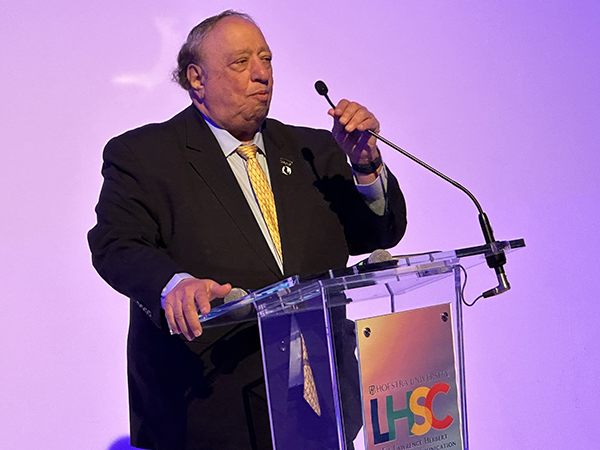
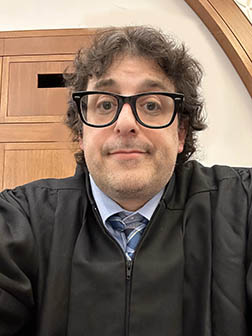 competition last evening (2/22) at the 1st Circuit Court of Appeals in Boston, MA. The American Bar Association, Law Student Division holds a number of annual national moot court competitions. One such event, the National Appellate Advocacy Competition, emphasizes the development of oral advocacy skills through a realistic appellate advocacy experience with moot court competitors participating in a hypothetical appeal to the United States Supreme Court. This year’s legal question focused on the Communications Decency Act – “Section 230” – and the applications of the exception from liability of internet service providers for the acts of third parties to the realistic scenario of a journalist’s photo/turned meme being used in advertising (CBD, ED treatment, gambling) without permission or compensation in violation of applicable state right of publicity statutes. Harrison tells TALKERS, “We are at one of those sensitive times in history where technology is changing at a quicker pace than the legal system and legislators can keep up with – particularly at the consequential juncture of big tech and mass communications. I was impressed and heartened by the articulateness and grasp of the Section 230 issue displayed by the law students arguing before me.”
competition last evening (2/22) at the 1st Circuit Court of Appeals in Boston, MA. The American Bar Association, Law Student Division holds a number of annual national moot court competitions. One such event, the National Appellate Advocacy Competition, emphasizes the development of oral advocacy skills through a realistic appellate advocacy experience with moot court competitors participating in a hypothetical appeal to the United States Supreme Court. This year’s legal question focused on the Communications Decency Act – “Section 230” – and the applications of the exception from liability of internet service providers for the acts of third parties to the realistic scenario of a journalist’s photo/turned meme being used in advertising (CBD, ED treatment, gambling) without permission or compensation in violation of applicable state right of publicity statutes. Harrison tells TALKERS, “We are at one of those sensitive times in history where technology is changing at a quicker pace than the legal system and legislators can keep up with – particularly at the consequential juncture of big tech and mass communications. I was impressed and heartened by the articulateness and grasp of the Section 230 issue displayed by the law students arguing before me.”  settled beforehand. Audacy expects to emerge from the Chapter 11 process after approval from the FCC. Audacy chairman, president and CEO David J. Field says, “Today’s announcement marks a powerful step forward for Audacy, positioning the company for an exciting future. As expected, we have achieved a speedy confirmation of our prepackaged Plan, which will enable Audacy to pursue our strategic goals and opportunities in the dynamic audio business. We aim to drive accelerated growth and financial performance, capitalizing on our scaled, leadership position, our uniquely differentiated premium audio content and the robust capital structure that we will have upon emergence. I also want to express my gratitude to our team, who continue their outstanding work to serve our listeners and customers with excellence and fulfill our commitments without missing a beat.” The company notes that under the Plan, trade and other unsecured creditors will not be impaired.
settled beforehand. Audacy expects to emerge from the Chapter 11 process after approval from the FCC. Audacy chairman, president and CEO David J. Field says, “Today’s announcement marks a powerful step forward for Audacy, positioning the company for an exciting future. As expected, we have achieved a speedy confirmation of our prepackaged Plan, which will enable Audacy to pursue our strategic goals and opportunities in the dynamic audio business. We aim to drive accelerated growth and financial performance, capitalizing on our scaled, leadership position, our uniquely differentiated premium audio content and the robust capital structure that we will have upon emergence. I also want to express my gratitude to our team, who continue their outstanding work to serve our listeners and customers with excellence and fulfill our commitments without missing a beat.” The company notes that under the Plan, trade and other unsecured creditors will not be impaired.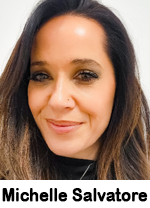 says, “Back in Spring of 2009, during the chaos and sleepless nights involved in launching this national media company, the media gods sent me an angel in the form of Michelle Salvatore. Michelle faced down every challenge, worked tirelessly and with good cheer, and set a gold standard of excellence for not only Compass Media Networks, but our industry. We love and will miss Michelle dearly. Our goal is to build upon the greatness she created as we move ahead into the next chapter of our evolution.” Salvatore comments, “Working at Compass Media Networks literally changed my life for the better. I was able to travel the globe, producing games throughout the United States, Latin America and Europe, and had the chance to work with incredibly talented, passionate, and kind people. I am forever grateful to my dear friends at Compass Media Networks.”
says, “Back in Spring of 2009, during the chaos and sleepless nights involved in launching this national media company, the media gods sent me an angel in the form of Michelle Salvatore. Michelle faced down every challenge, worked tirelessly and with good cheer, and set a gold standard of excellence for not only Compass Media Networks, but our industry. We love and will miss Michelle dearly. Our goal is to build upon the greatness she created as we move ahead into the next chapter of our evolution.” Salvatore comments, “Working at Compass Media Networks literally changed my life for the better. I was able to travel the globe, producing games throughout the United States, Latin America and Europe, and had the chance to work with incredibly talented, passionate, and kind people. I am forever grateful to my dear friends at Compass Media Networks.”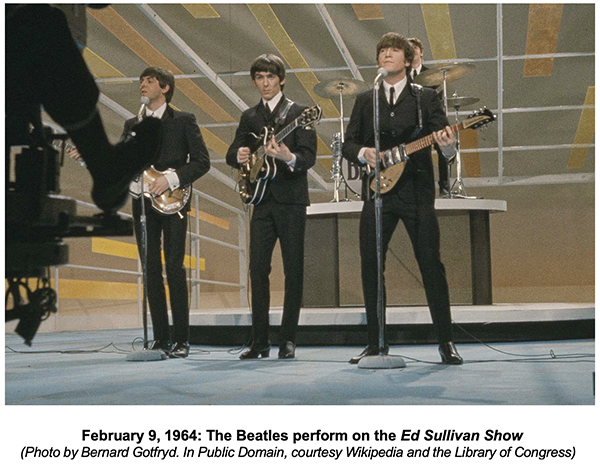
 In early December 1963, America was a very gloomy place. The assassination of President John F. Kennedy on November 22 brought the country to a virtual standstill for four days, and the emotional and psychological hangover lingered for weeks. The nation needed a dose of uplifting energy and fun, and the Beatles were the ideal remedy.
In early December 1963, America was a very gloomy place. The assassination of President John F. Kennedy on November 22 brought the country to a virtual standstill for four days, and the emotional and psychological hangover lingered for weeks. The nation needed a dose of uplifting energy and fun, and the Beatles were the ideal remedy.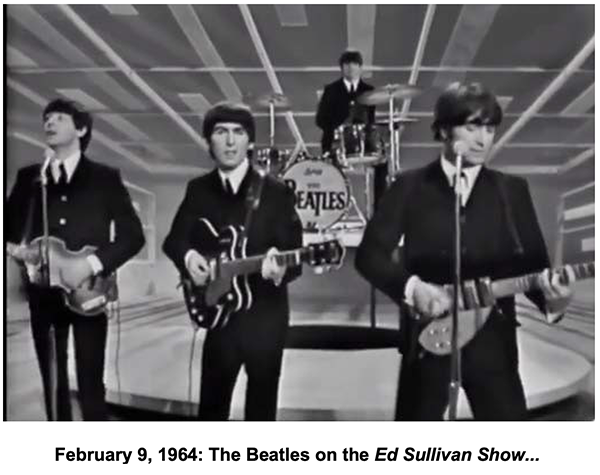
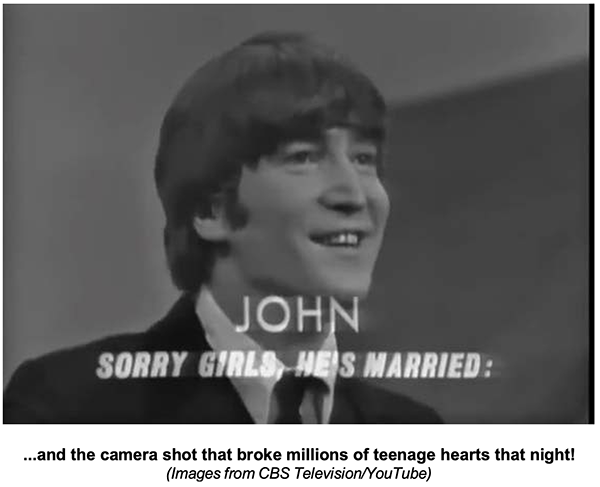
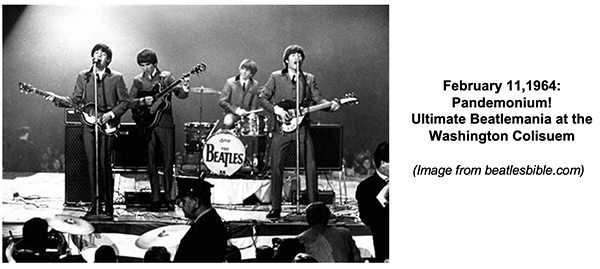
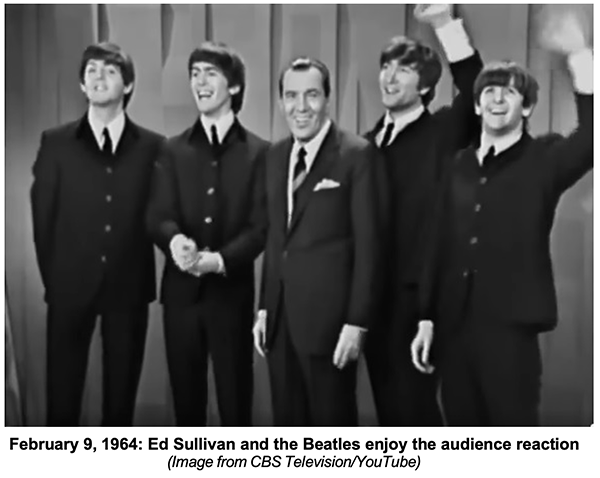
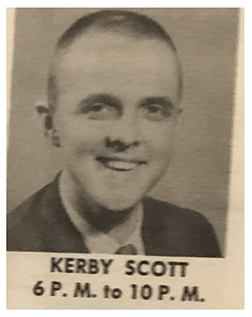 1964 WCAO Promotional Material: “Kerby Scott photo
1964 WCAO Promotional Material: “Kerby Scott photo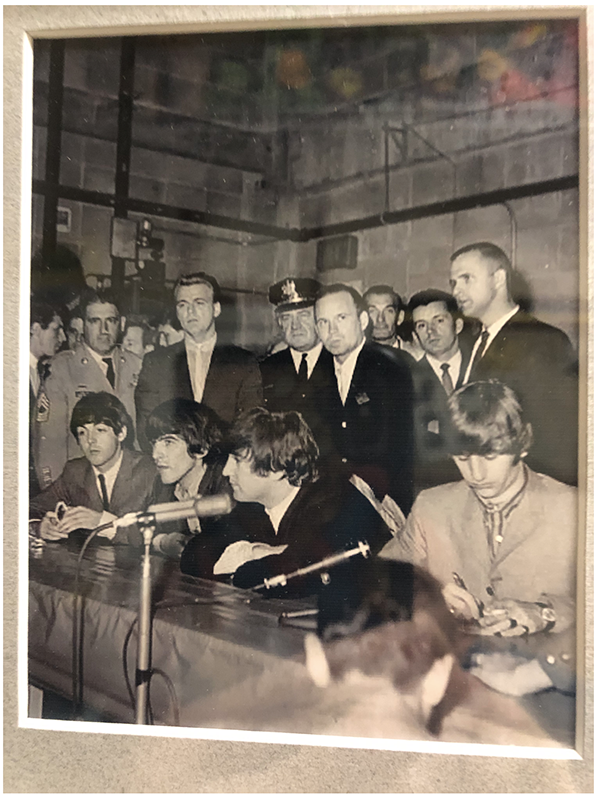
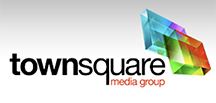 compliance reports to the Bureau through the remainder of the current license terms of the two stations, and pay a Civil Penalty to the United States Treasury in the total amount of $500,000.” The violations in question center on a program that aired on Townsquare’s news/talk outlets KIDO-AM, Boise and KLIX-AM, Idaho Falls from October 2021 through March 2023 in which they “broadcast a one-hour episode of, and 30-second advertisements promoting, the Program. The format of each episode nominally resembled a news interview/public affairs program produced and presented by the Stations. In fact, however, all episodes of the Program were paid political presentations. Townsquare was paid to broadcast episodes of the Program and related advertisements initially by and on behalf of the Idaho Republican Party, and later by Tom Luna on behalf of a company doing business as Tom Luna and Associates. The hosts of each episode (Tom Luna and Victor Miller, chairman of the Ada County (Idaho) Republican Party) were solely responsible for producing the Program, including selecting guests and determining program content. Neither station provided any on-air Sponsorship ID announcements for the vast majority of the episodes or promotional advertisements that they aired revealing to listeners the true nature of the broadcasts and the identity of those who paid for them. In addition, multiple episodes of the Program contained appearances that constituted uses by legally qualified candidates for public office and communicated messages relating to political matters of national importance. Neither station uploaded records of any such candidate uses or messages to their respective online political files.”
compliance reports to the Bureau through the remainder of the current license terms of the two stations, and pay a Civil Penalty to the United States Treasury in the total amount of $500,000.” The violations in question center on a program that aired on Townsquare’s news/talk outlets KIDO-AM, Boise and KLIX-AM, Idaho Falls from October 2021 through March 2023 in which they “broadcast a one-hour episode of, and 30-second advertisements promoting, the Program. The format of each episode nominally resembled a news interview/public affairs program produced and presented by the Stations. In fact, however, all episodes of the Program were paid political presentations. Townsquare was paid to broadcast episodes of the Program and related advertisements initially by and on behalf of the Idaho Republican Party, and later by Tom Luna on behalf of a company doing business as Tom Luna and Associates. The hosts of each episode (Tom Luna and Victor Miller, chairman of the Ada County (Idaho) Republican Party) were solely responsible for producing the Program, including selecting guests and determining program content. Neither station provided any on-air Sponsorship ID announcements for the vast majority of the episodes or promotional advertisements that they aired revealing to listeners the true nature of the broadcasts and the identity of those who paid for them. In addition, multiple episodes of the Program contained appearances that constituted uses by legally qualified candidates for public office and communicated messages relating to political matters of national importance. Neither station uploaded records of any such candidate uses or messages to their respective online political files.”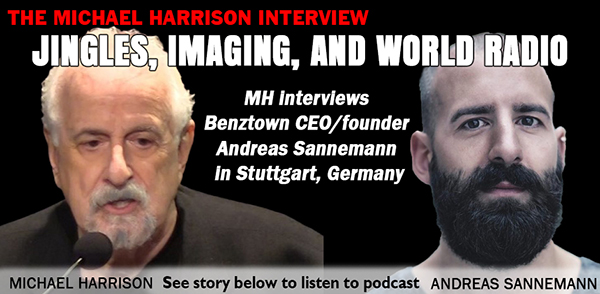
 national news and entertainment. The station will play host to nationally syndicated programs like “The Ramsey Show,” “The Michael Berry Show,” “The Joe Pags Show,” “Armstrong & Getty” and “Michael DelGiorno” as well as “Bloomberg Radio.” iHeartMedia Tampa Bay SVP of programming Tommy Chuck adds, “Tampa Bay is one of the fastest-growing communities in the United States. As the region’s economy continues to grow, we are pleased to offer programming tailored to the people making that happen. Around the clock, the programming will keep listeners informed on issues affecting their everyday lives and pocketbooks.”
national news and entertainment. The station will play host to nationally syndicated programs like “The Ramsey Show,” “The Michael Berry Show,” “The Joe Pags Show,” “Armstrong & Getty” and “Michael DelGiorno” as well as “Bloomberg Radio.” iHeartMedia Tampa Bay SVP of programming Tommy Chuck adds, “Tampa Bay is one of the fastest-growing communities in the United States. As the region’s economy continues to grow, we are pleased to offer programming tailored to the people making that happen. Around the clock, the programming will keep listeners informed on issues affecting their everyday lives and pocketbooks.” company’s existing $75 million accounts receivables financing facility to $100 million. The DIP financing, the upsize of the accounts receivables financing facility and the company’s cash from operations and available reserves will enable Audacy to fulfill commitments to employees, advertisers, partners and vendors. The court also authorizes Audacy to continue to pay employee wages, salaries and benefits without interruption and to pay vendors and suppliers. This latest news comes after the company entered into a restructuring support agreement (“RSA”) with a supermajority of its debtholders. Under the terms of the RSA, the debtholders committed to vote in favor of a plan of reorganization that, when consummated, will equitize approximately $1.6 billion of funded debt, a reduction of 80% from approximately $1.9 billion to approximately $350 million. Audacy says it does not expect any operational impact from the restructuring, and trade and other unsecured creditors will not be impaired.
company’s existing $75 million accounts receivables financing facility to $100 million. The DIP financing, the upsize of the accounts receivables financing facility and the company’s cash from operations and available reserves will enable Audacy to fulfill commitments to employees, advertisers, partners and vendors. The court also authorizes Audacy to continue to pay employee wages, salaries and benefits without interruption and to pay vendors and suppliers. This latest news comes after the company entered into a restructuring support agreement (“RSA”) with a supermajority of its debtholders. Under the terms of the RSA, the debtholders committed to vote in favor of a plan of reorganization that, when consummated, will equitize approximately $1.6 billion of funded debt, a reduction of 80% from approximately $1.9 billion to approximately $350 million. Audacy says it does not expect any operational impact from the restructuring, and trade and other unsecured creditors will not be impaired.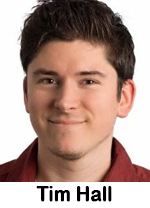 director and operations manager Matt Fishman says, “Tim’s extensive background in the sports talk format is invaluable as we continue to grow ‘97.1 The Fan’ and ‘1460 ESPN’ here in Columbus. I look forward to watching Tim grow in this new role and seeing his impact on the team and the overall product.” Station manager Cody Welling adds, “For the last several months, Tim has expressed the interest and ability to grow as a broadcaster and as a programmer. As ‘97.1 The Fan’ continues to innovate as one of the elite sports radio properties in the United States, I’m excited to see the contributions that Tim will deliver for our station and the community.”
director and operations manager Matt Fishman says, “Tim’s extensive background in the sports talk format is invaluable as we continue to grow ‘97.1 The Fan’ and ‘1460 ESPN’ here in Columbus. I look forward to watching Tim grow in this new role and seeing his impact on the team and the overall product.” Station manager Cody Welling adds, “For the last several months, Tim has expressed the interest and ability to grow as a broadcaster and as a programmer. As ‘97.1 The Fan’ continues to innovate as one of the elite sports radio properties in the United States, I’m excited to see the contributions that Tim will deliver for our station and the community.”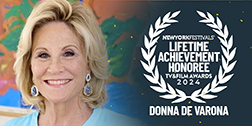 advanced their field and made a lasting impression on the industry. It will be celebrated at the Storytellers Gala honoring TV & Film Awards and Radio Awards trophy winners on April 16. Donna de Varona – a U.S. Olympic Hall of Famer – is currently a member of the board of directors of the United States Olympic and Paralympic Committee. She is renowned for covering 18 Olympic Games from multiple networks including ABC, NBC, CBS, and Turner. As a pioneer for women in sports, she played a key role in establishing the Women’s Sports Foundation, serving as its first president and chairman. She chaired the groundbreaking 1999 FIFA Women’s Soccer World Cup and contributed to the formation of the very first IOC athletes commission in 1981 during the IOC Congress in Baden-Baden, Germany.
advanced their field and made a lasting impression on the industry. It will be celebrated at the Storytellers Gala honoring TV & Film Awards and Radio Awards trophy winners on April 16. Donna de Varona – a U.S. Olympic Hall of Famer – is currently a member of the board of directors of the United States Olympic and Paralympic Committee. She is renowned for covering 18 Olympic Games from multiple networks including ABC, NBC, CBS, and Turner. As a pioneer for women in sports, she played a key role in establishing the Women’s Sports Foundation, serving as its first president and chairman. She chaired the groundbreaking 1999 FIFA Women’s Soccer World Cup and contributed to the formation of the very first IOC athletes commission in 1981 during the IOC Congress in Baden-Baden, Germany. listener likelihood based on a description of Podcast Radio was measured among a panel of 500 18-64-year-old podcast consumers in the United States. Podcast Radio founder and CEO Gerry Edwards says, “Podcast Radio can help radio effectively play offense to the rise of podcasts as an in-vehicle, in-home and mobile entertainment choice. This new data reinforces that strong, engaging, spoken-word content continues to evolve in exciting ways to meet the needs of U.S. listeners. That can enable radio to remain competitive and provide an attractive alternative for radio stations and radio groups.”
listener likelihood based on a description of Podcast Radio was measured among a panel of 500 18-64-year-old podcast consumers in the United States. Podcast Radio founder and CEO Gerry Edwards says, “Podcast Radio can help radio effectively play offense to the rise of podcasts as an in-vehicle, in-home and mobile entertainment choice. This new data reinforces that strong, engaging, spoken-word content continues to evolve in exciting ways to meet the needs of U.S. listeners. That can enable radio to remain competitive and provide an attractive alternative for radio stations and radio groups.”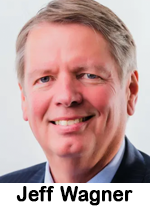 it has been an honor and a pleasure to host a daily radio talk show in my hometown for a quarter century. I am extremely grateful to Good Karma Brands, my teammates (past and present), our partners, and most importantly, our fans for all their support over the years. While I’m excited to see what comes next, I will truly miss the daily interaction with listeners about the issues of the day.” Wagner has been a long-standing member of the TALKERS magazine Heavy Hundred – the annual list of the 100 Most Important Radio Talk Show Hosts in America. Good Karma Milwaukee market manager Greg Scalzo comments, “Jeff is a broadcasting legend whose daily wisdom and dedication to the station was felt by our audience throughout his entire career. His retirement marks the end of an era, and we celebrate the legacy he leaves behind.” Before joining WTMJ, Wagner was an Assistant United States Attorney for the Eastern District of Wisconsin and later an attorney in private practice.
it has been an honor and a pleasure to host a daily radio talk show in my hometown for a quarter century. I am extremely grateful to Good Karma Brands, my teammates (past and present), our partners, and most importantly, our fans for all their support over the years. While I’m excited to see what comes next, I will truly miss the daily interaction with listeners about the issues of the day.” Wagner has been a long-standing member of the TALKERS magazine Heavy Hundred – the annual list of the 100 Most Important Radio Talk Show Hosts in America. Good Karma Milwaukee market manager Greg Scalzo comments, “Jeff is a broadcasting legend whose daily wisdom and dedication to the station was felt by our audience throughout his entire career. His retirement marks the end of an era, and we celebrate the legacy he leaves behind.” Before joining WTMJ, Wagner was an Assistant United States Attorney for the Eastern District of Wisconsin and later an attorney in private practice. 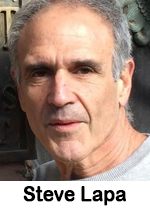 It may seem impossible, but you need to stay in your lane.
It may seem impossible, but you need to stay in your lane. The History Channel calls it “The Most Dramatic Home Run in World Series History.” ESPN has often described it as the greatest home run of all time. To this day, it is the only World Series Game 7 walk-off home run.
The History Channel calls it “The Most Dramatic Home Run in World Series History.” ESPN has often described it as the greatest home run of all time. To this day, it is the only World Series Game 7 walk-off home run.